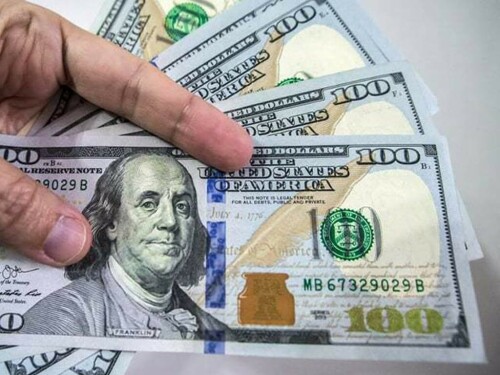Pakistani Rupee Inches Up Against US Dollar
The Pakistani rupee saw a slight increase against the US dollar, gaining by 0.01% in early trading on Friday in the inter-bank market.
As of 10:25 am, the rupee was valued at 280.93, showing an appreciation of Re0.04 against the dollar.
The rupee’s previous close was at 280.97 on Wednesday. The currency market was closed on Thursday for Labour Day.
Global Market Influences
Globally, the US dollar was on track for its third consecutive week of gains as positive signs from Washington’s discussions with trade allies and stronger economic data reduced concerns about investing in the US economy.
The dollar, US bonds, and equities have recovered from sharp declines last month, which were triggered by worries over President Donald Trump’s tariff policies that raised recession fears and undermined confidence in US assets.
Overnight, Wall Street experienced a rally fueled by strong tech sector earnings and a slightly better-than-anticipated manufacturing report, even though it indicated a continued contraction in factory activity last month.
Attention is now directed towards the upcoming release of nonfarm payrolls data later today.
In early Asian trading, the dollar index remained relatively stable, poised for a 0.5% increase in a week characterized by reduced trading volumes due to holidays. The dollar was trading at 145.53 yen, slightly below a three-week high reached on Thursday.
Oil Prices Rise Amid Trade Talk Hopes
Oil prices, a vital indicator of currency values, increased in early Asian trading on Friday after China expressed openness to discussions with the United States, raising hopes for a reduction in the intense trade dispute between the world’s two largest economies.
Brent crude futures increased by 38 cents, or 0.6%, to $62.51 a barrel as of 0136 GMT, while US West Texas Intermediate crude futures also rose by 38 cents, or 0.6%, to $59.62 a barrel.
In recent weeks, oil prices have been significantly affected by concerns that the broader trade conflict could push the global economy into a recession and decrease oil demand, especially as the OPEC+ group prepares to increase production.
This is an intra-day update



Comments (0)
No comments yet. Be the first to comment!
Leave a Comment